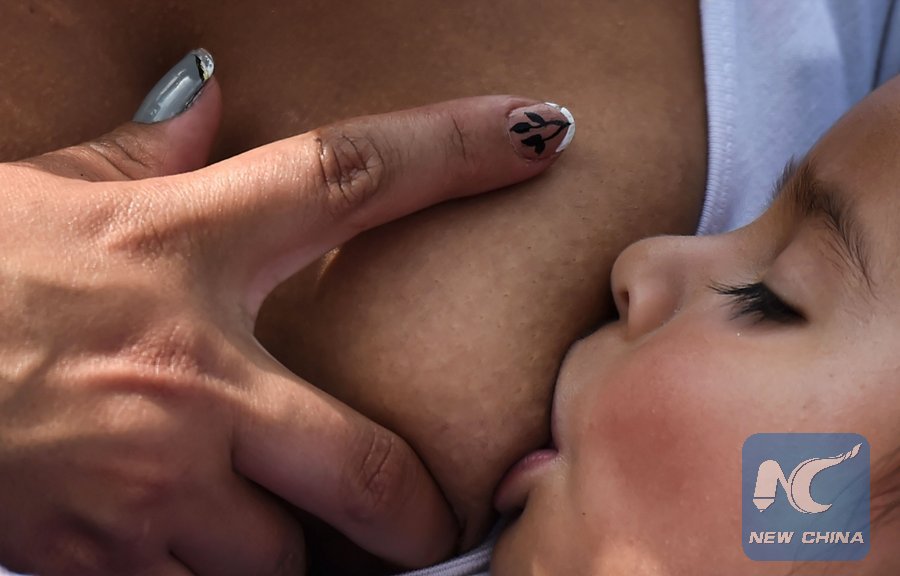
A woman breastfeeds her baby, during a public event to promote the benefits of breastfeeding, at a park in Bogota on November 3, 2017. (Xinhua/ AFP PHOTO)
WASHINGTON, Jan. 16 (Xinhua) -- Breastfeeding for six months or longer appears to significantly cut the risk of a woman developing type 2 diabetes, a 30-year U.S. study said Tuesday.
The Kaiser Permanente research, published in the U.S. journal JAMA Internal Medicine, analyzed data from the Coronary Artery Risk Development in Young Adults (CARDIA) study, a national, multi-center investigation that originally enrolled about 5,000 adults aged 18 to 30 in 1985 to 1986.
This study included 1,238 black and white women who did not have diabetes when they enrolled in CARDIA, or prior to their subsequent pregnancies.
Over the next 30 years, each woman had at least one live birth and was routinely screened for diabetes under the CARDIA protocol.
Participants also reported lifestyle behaviors such as diet and physical activity and the total amount of time they breastfed their children.
It showed that women who breastfed for six months or more across all births had a 47 percent reduction in their risk of developing type 2 diabetes compared to those who did not breastfeed at all.
Women who breastfed for six months or less had a 25 percent reduction in diabetes risk.
"We found a very strong association between breastfeeding duration and lower risk of developing diabetes, even after accounting for all possible confounding risk factors," said lead author Erica Gunderson, senior research scientist with the Kaiser Permanente Division of Research.
The new findings added to a growing body of evidence that breastfeeding has protective effects for both mothers and their offspring, including lowering a mother's risk of breast and ovarian cancer.
Previous research identifying an association between breastfeeding and protection against later diabetes was conducted in older women using self-reported diabetes.
Several plausible biological mechanisms are possible for the protective effects of breastfeeding, including the influence of lactation-associated hormones on the pancreatic cells that control blood insulin levels and thereby impact blood sugar.
"We have known for a long time that breastfeeding has many benefits both for mothers and babies, however, previous evidence showed only weak effects on chronic disease in women," said Tracy Flanagan, director of women's health for Kaiser Permanente Northern California.
"Now we see much stronger protection from this new study showing that mothers who breastfeed for months after their delivery, may be reducing their risk of developing type 2 diabetes by up to one half as they get older. This is yet another reason that doctors, nurses, and hospitals as well as policymakers should support women and their families to breastfeed as long as possible."

